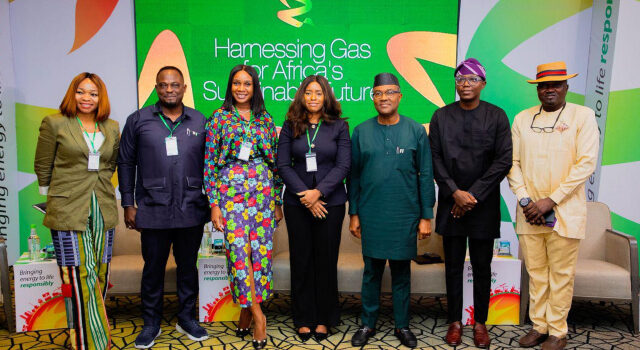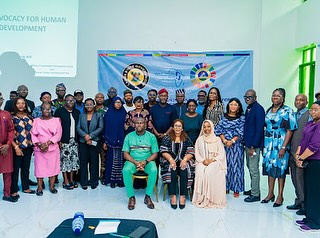The 2021 P4G Seoul Summit kicked off for a two-day run in a virtual ceremony at Dongdaemun Design Plaza (DDP) in Seoul on May 30. The first-ever climate change summit to be held in Korea was livestreamed via the P4G Seoul Summit’s official webpage and YouTube.
The opening ceremony started with a video projection of images of traditional Korean landscape paintings. It was followed by an animation on environmental conservation by Jeon Yi-soo, a children’s book writer, and a performance of the summit’s official song, “We Are One,” by singer Sohyang and Seoul CBS Children’s Choir.
After a video introduction of participating leaders, a dance performance by ballerina Kim Joo-won was staged with actress Han Ye-ri’s narration. Child actress Park Ye-rin was next on stage for a performance of a tree planting expressing the desire for a healthy Earth.
Then, Korean President Moon Jae-in declared the opening of the summit with his speech that stressed Korea’s commitment to climate change response and an inclusive green recovery. Moon said Korea would further strengthen its 2030 greenhouse gas emissions reduction target and halt official financial support for new coal-fired power plants overseas.
“Korea will sharply increase its official development assistance for climate and green projects by 2025, to support developing countries in need for a green recovery,” he added. He said that Korea would provide US$4 million to P4G to support its operations and will actively and preemptively implement policies to ensure that the journey to carbon neutrality by 2050 guides a path to sustainable development.
He added Korea will step up its efforts toward biodiversity, expressing the willingness to join such initiatives as the Leaders’ Pledge for Nature, the alliance for the expansion of biodiversity protected areas and the Global Ocean Alliance, for the success of the 15th Conference of Parties (COP 15) of the UN Convention on Biological Diversity (UN CBD) to be held in China in October.
He made the opening address against the backdrop of an eye-catching augmented reality-based images of nature, in which trees grow into large forests and water flows to the ocean. The address was followed by the screening of the summit’s official thematic video, “Wake-up Call” and a closing performance.
After the opening ceremony, the Leaders’ Session began with Korean Prime Minister Kim Boo-kyum’s opening remarks. “The lesson we learned from the ongoing COVID-19 crisis is that the globe and humanity are all connected as one, and that the global community must cooperate together. The P4G represents the cooperation among the government, international organizations, companies and civil society, and that is why we gather together,” Kim said.
Korean Ambassador for Climate Change Yoo Yeon-chul, Global Green Growth Institute Director-General Frank Rijsberman and Green Climate Fund Executive Director Yannick Glemarec attended the Leaders’ Session in person. Leaders from around the world sent video messages focusing on green recovery, carbon neutrality and private-public partnerships. They included President of the European Council Charles Michel, British Prime Minister Boris Johnson, Chinese Premier Li Keqiang, German Chancellor Angela Merkel, French President Emmanuel Macron, Indonesian President Joko Widodo, Ethiopian President Sahle-Work Zewede, UN Secretary-General Antonio Guterres and Japanese Environment Minister Shinjiro Koizumi.
British Prime Minister Boris Johnson was the first to speak on the theme of green recovery. He said the UK would support the transition to a green economy through R&D investment and technology development and that the country would harness enough offshore wind to power every home by the end of this decade. He added that all-out efforts must be made for the next five months for the success of the 26th UN Climate Change Conference of the Parties (COP26) to be held in Glasgow, Scotland, in November. Chinese Premier Li Keqiang commented that global cooperation is a must for a sustainable green development and that China, as the world’s largest developing country, would contribute to a low-carbon, green recovery by pledging carbon neutrality by 2060 and holding COP 15 of the UN CBD. UN Secretary-General Antonio Guterres expressed his anticipation that each nation will announce detailed implementation plans, such as Korea’s announcement that it will halt its public financial support for overseas coal power projects. Uzbek President Shavkat Mirziyoyev said Korea is playing a leading role in the green agenda and sustainable development in the international community.
Under the theme of carbon neutrality, German Chancellor Angela Merkel said effective climate change mitigation needs a market framework and that is why Germany is committed to carbon pricing in not just in the energy and industrial sectors but also in transport and heating. She stressed the need to mobilize private capital worldwide for investment in climate change mitigation. French President Emmanuel Macron stressed the need to raise climate response targets and improve the transparency of corporate investment in environmental issues. He also emphasized that the international community must support African countries’ transition from a fossil-fuel economy to a decarbonized economy. Japanese Environment Minister Shinjiro Koizumi called on the need to redesign the socioeconomic system to make it sustainable and resilient. He said that Japan would reduce greenhouse gas emissions compared to emission levels of 2013 by the year 2030 and continuously work toward the challenging goal of a 50 percent reduction in emissions.
On private-public partnerships, Chilean President Sebastian Pinera said he would support the creation of various projects to accelerate climate action. The Leaders’ Session lasted three hours.
On May 31, Day 2 of the P4G Seoul Summit, five Thematic Sessions began on 1 p.m. and the Leaders’ Dialogue and the adoption of the Seoul Declaration will start at 10 p.m. EU Commission President Ursula von der Leyen, Danish Prime Minister Mette Frederiksen, Dutch Prime Minister Mark Rutte, Colombian President Ivan Duque Marquez, Kenyan President Uhuru Kenyatta, US Special Presidential Envoy for Climate John Kerry and International Monetary Fund Managing Director Kristalina Georgieva will join the Leaders’ Dialogue via video link.
As the leader of the host country, President Moon will preside over the event and read out the Seoul Declaration. The declaration is expected to address the need for international solidarity to overcome the COVID-19 pandemic and climate crisis, global efforts to implement the Paris climate agreement as well as the need to resolve the problems of marine pollution including plastic waste.
People can watch the summit programs through the virtual event platform on the P4G Seoul Summit’s official website (2021p4g-seoulsummit.kr). All sessions will be livestreamed through the 2021 P4G Seoul Summit’s virtual platform and official YouTube channel (@2021P4GSeoul-summit). All video clips of the sessions will be uploaded on the official website after they are over.
- 2021 P4G Summit Seoul (https://2021p4g-seoulsummit.
kr)
P4G (Partnering for Green Growth and the Global Goals 2030) was launched in September 2017, led by Denmark, as a global initiative to accelerate the response to climate change and the achievement of the Sustainable Development Goals (SDGs) through public-private partnerships. Of the 17 SDGs set out by the United Nations in 2015 with the aim of achieving them by 2030, P4G specifically targets five objectives related to climate change (food and agriculture, clean water, clean energy, sustainable cities and circular economy). Twelve countries – the Republic of Korea, Denmark, the Netherlands, Vietnam, Mexico, Chile, Colombia, Kenya, Ethiopia, Bangladesh, Indonesia and South Africa – as well as international organizations (including the World Economic Forum and the Global Green Growth Institute) and private companies participate in the summit. P4G is a consultation group consisting of governments, companies and civil society organizations, puts an emphasis on action-oriented public-private cooperation, is composed of middle-power countries (playing the role of a bridge between developing countries and developed countries), and seeks to build a sustainable business model (a bridge between development and investment).
SOURCE Ministry of Foreign Affairs, Republic of Korea







